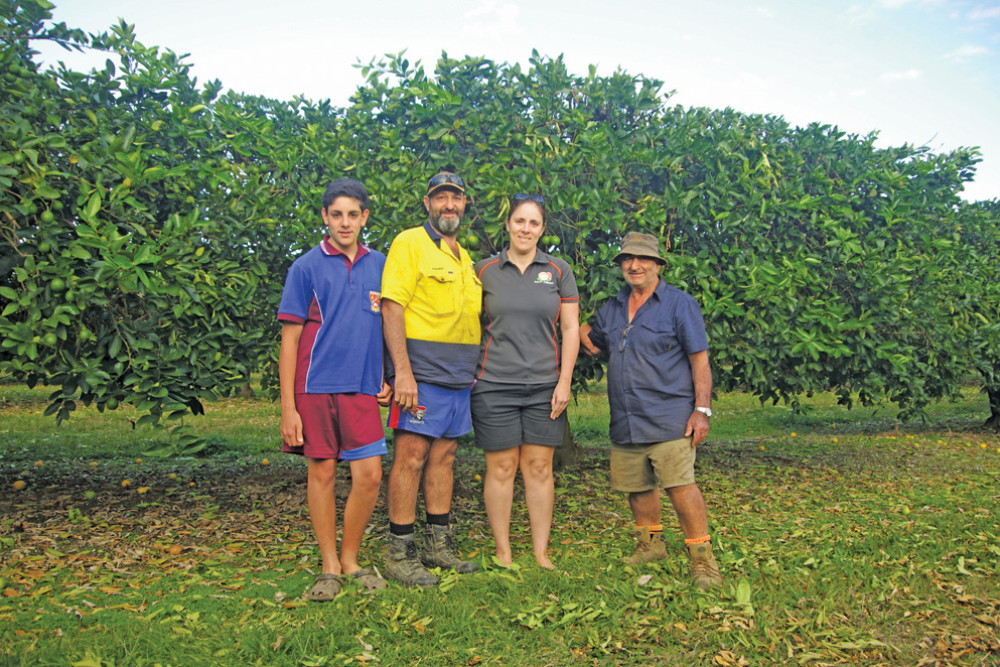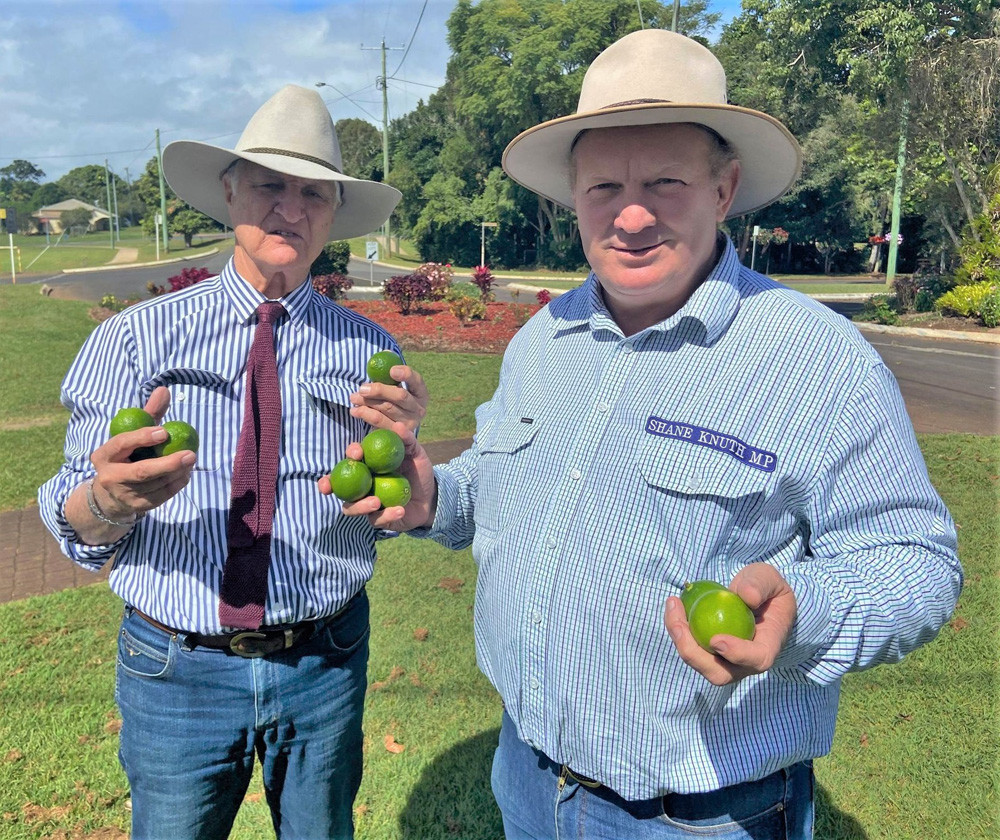On The Land
30 August, 2023
Detrimental decision sours FNQ lime industry
A RECENT Federal Government’s decision to allow Mexican limes into the country could herald the decimation of the Far North Queensland lime industry and the destruction of growers’ livelihoods.

FNQ Growers president Joe Moro said Mexican limes have been granted access into Australia based on certain protocols.
“Growers are very concerned,” Mr Moro said.
“The Far North is the biggest producer of limes in Australia and this decision will put the ongoing viability of growers in doubt.
“We are hoping that consumers and retailers will support local producers instead.”
Mutchilba lime grower of Muccignat Farming and FNQ Growers committee executive, Karen Muccignat, has been growing limes for 34 years and said limes had been her life.
“We have worked hard attending meetings and writing submissions to try and halt the decision,” she said.
“FNQ Lime Growers are devastated at the Minister’s decision to allow market access of Mexican limes into Australia.
“There are massive biosecurity issues which include the threat of pests and diseases like citrus canker, citrus scab, Asian citrus psyllid and citrus leprosis just to name a few.
“There are actually more biosecurity requirements placed on us to ship to domestic markets, than what the Federal Department has come up with for the Mexican limes to enter Australia.
“Apparently according to the government, all biosecurity concerns are 'low risk'.
“On top of this, we will be unable to compete with the Mexican cost of production and the inferior fruit will drag back market prices.
“We produce limes 52 weeks of the year in Far North Queensland and there is no need for an imported product.
“We have a lot of younger growers in Far North Queensland that are newer to the industry and there is concern for their viability into the future as we already face an excess overregulation, such as nonsensical endless audits.
“We will be appealing to the minister to reverse the decision.
“We will be urging wholesalers not to import, urging supermarkets not to stock the Mexican product, and finally will be appealing to the consumer to support Australian grown produce, thus supporting Aussie farmers and communities.”
Biboohra lime growers Giovanni and Gina Galati of Galati Farming said the decision was a “double-edged sword” with the ruling threatening to wipe out the local market and create a pathway for pests and diseases to also be imported due to the Federal Government’s free market ideology.
“Lime growers are being sacrificed – we will not be able to remain viable,” Mrs Galati said.
“Australian farmers have a wide range of extensive audits. I firmly believe that Australian produce is some of the safest produce in the world.”
Mrs Galati is demanding proof that Mexico will have to meet the same standards as Australian growers.
“Ironically, the ‘Fresh Food Tax’, which will be further imposed on growers from 1 July in 2024, will be used to make growers pay for the biosecurity risks of international importers from other countries,” she said.
“Growers will also be forced to wear the crippling costs associated with trying to contain and eradicate pest and disease outbreaks on their own properties associated with the importation of Mexican limes.
“Lime growers do not have the ability to pass on increases in price inputs such as fertiliser, fuel and freight and are forced to absorb costs instead.
“The unknown detrimental impact that the importation of Mexican limes will have on our local industry will be impossible to determine.”
Federal Member for Kennedy Bob Katter said he had written to Federal Agriculture Minister Murray Watt imploring him to not allow Mexican limes into the country and drawing the Minister’s attention to Australia’s $768m per year citrus industry which will be decimated by this decision.
“The government’s own analysis states there’s 20 different diseases associated with these limes and I really don’t believe that even the strictest quarantine protocols can negate this threat,” he said.
“In Mexico, limes and other citrus are produced in farms that have vastly different regulations to those imposed on Australian farms.’’
Mr Katter said there were no guarantees that imported limes would be subject to the same regulatory impositions and standards, including wage and workplace standards which are placed on farmers by both the Australian government and the major supermarket chains.
He said the input costs experienced by local growers which include wages and regulatory checks compare unfavourably to their Mexican counterparts.



